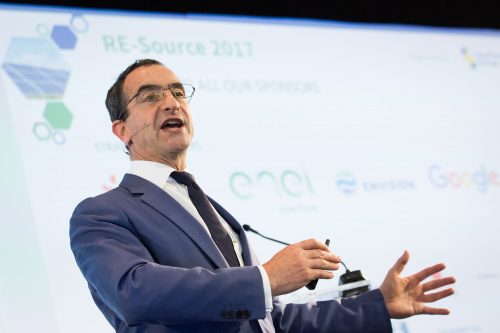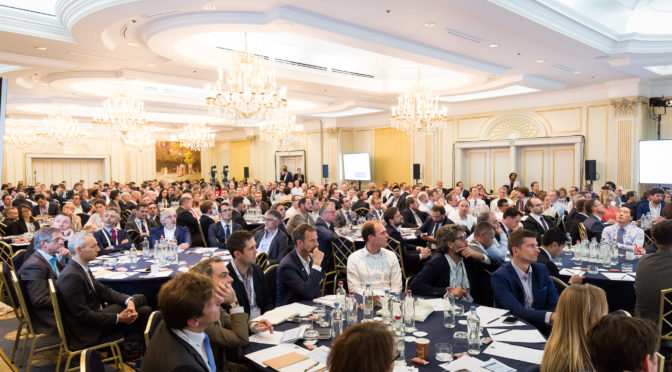Aplicación de la presente Política de Privacidad:
El presente documento regula la Política de Privacidad tanto del presente sitio web, así como de la totalidad de datos e información que pudiera manejar ASOCIACIÓN EMPRESARIAL EÓLICA (en lo sucesivo, "AEE") como Responsable del Tratamiento.
Por ello, para cumplir con el artículo 13 y 14 del Reglamento (UE) 2016/679 del Parlamento Europeo y del Consejo de 27 de abril de 2016 relativo a la protección de las personas físicas en lo que respecta al tratamiento de datos personales y a la libre circulación de estos datos (en lo sucesivo "RGPD" o "Reglamento General de Protección de Datos"), así como el artículo 11 de la Ley Orgánica 3/2018, de 5 de diciembre, de Protección de Datos Personales y garantía de los derechos digitales (en lo sucesivo "LOPDGDD") se ha establecido y desarrollado la presente Política de Privacidad.
Responsable del Tratamiento:
Tus datos personales son manejados por, nosotros, AEE como Responsable del Tratamiento. Te detallamos nuestros datos sociales para que te puedas poner en contacto con nosotros cuando lo desees:
-
Razón social: ASOCIACIÓN EMPRESARIAL EÓLICA
-
CIF: C83488163
-
Domicilio: C/ SOR ÁNGELA DE LA CRUZ, 2, PLANTA 14D – 28020 MADRID
-
Teléfono: (+34) 917 451 276
-
Correo electrónico: [email protected]
Finalidades y bases legitimadoras:
El presente apartado regula la totalidad de tratamientos llevados a cabo por AEE, en base a cada una de las finalidades, conforme a las bases legitimadoras que lo regulan, comprendido éstos en los que se enumeran a continuación:
Usuarios página web: atender su solicitud a través del formulario de contacto.
Procesos de selección de personal: formar parte de los procesos de selección ofertados.
Socios / asociados
-
Gestión de alta como socio/asociado de AEE.
-
Mantenimiento y perfeccionamiento de la relación contractual pactada entre AEE y su empresa.
-
Gestión contable y administrativa del servicio entre AEE y su empresa.
-
Gestionar las comunicaciones electrónicas entre AEE y su empresa.
Socios / asociados potenciales
-
Atender cualquier solicitud de información que nos hagas llegar.
-
Hacerle llegar, en su caso, ofertas comerciales.
Empleados
-
Mantenimiento y perfeccionamiento de la relación laboral pactada entre AEE y usted.
-
Gestión contable, fiscal y administrativa de la relación laboral.
-
Gestionar y realizar el pago de su nómina pactada contractualmente y exigidas por la legislación laboral.
-
Gestionar comunicaciones entre AEE y su usted.
-
Realizar el seguimiento de las acciones formativas de las que sea sujeto.
-
Gestión de bajas por enfermedad.
Actividades comerciales: envío de información comercial a usuarios sobre productos y servicios semejantes a los previamente contratados, en vinculación con el artículo 21.2 de la LSSICE.
Videovigilancia: gestión de la seguridad de instalaciones, bienes y personas a través de mecanismos de videovigilancia.
Asimismo, se le informa que todos los datos que AEE le solicite o pudiera solicitar marcados con un asterisco (*) serán obligatorios. En el caso de que los datos obligatorios no fueran facilitados AEE no podrá prestarle el servicio contratado o atender su petición o solicitud.
En cumplimiento del artículo 4.2.a de la LOPDGDD, se garantiza que los datos de carácter personal facilitados por usted hacia AEE se considerarán exactos. Sin embargo, AEE podría solicitarle la actualización de los mismos que sobre usted pudiera conservar.
Plazo de conservación de los datos:
En virtud del artículo 5.1.e) del RGPD, los plazos de conservación de los datos variarán en función del tratamiento realizado. Por ello, desde AEE le aconsejamos leer nuestra Política de conservación de datos para su consulta, la cual la podrá solicitar en [email protected]
No obstante, pese a la existencia de estos plazos generales, le informamos que de forma periódica revisaremos nuestros sistemas para proceder a eliminar aquellos datos que no sean legalmente necesarios.
Derechos que le asisten a los interesados:
La normativa de protección de datos le reconoce los siguientes derechos:
Derecho a solicitar el acceso a sus datos personales.
Derecho a solicitar la rectificación de sus datos personales.
Derecho a solicitar la supresión de sus datos personales.
Derecho a solicitar la limitación del tratamiento.
Derecho a oponerse al tratamiento.
Derecho a la portabilidad.
Derecho a no ser objeto de decisiones individuales automatizadas.
Derecho a retirar su consentimiento.
El ejercicio de tales derechos deberá ser comunicado a ASOCIACIÓN EMPRESARIAL EÓLICA, con domicilio en C/ SOR ÁNGELA DE LA CRUZ, 2, PLANTA 14D – 28020 MADRID, o la cuenta de correo electrónico [email protected]. Adicionalmente, puede presentar una reclamación ante la Agencia Española de Protección de Datos (AEPD). Más información en el Apartado Autoridad de Control de la presente política de privacidad.
Destinatarios y transferencias internacionales de datos:
Sus datos personales podrían serán comunicados a Autoridades Públicas o gubernamentales, Fuerzas y Cuerpos de Seguridad del Estado, para dar cumplimiento a los requisitos legales y normativa aplicable en cada caso concreto.
A su vez, podrían ser comunicados a terceros proveedores o entidades para la prestación de algún servicio subcontratado por AEE. A este aspecto le informamos que se han firmado los correspondientes contratos de encargado del tratamiento exigidos por el artículo 28 y 29 del RGPD así como el artículo 28 de la LOPDGDD, y siempre éstos garantizando y siendo comprobado por AEE que cumplen y garantizan con medidas jurídicas, técnicas y organizativas suficientes. Le informamos que sus datos no serán comunicados a terceras personas. Ni se realizarán transferencias internacionales de datos.
Procedencia de los datos personales:
Los datos de carácter personal que trata AEE proceden de usted como titular de los mismos.
A las cuales, usted previamente le ha facilitado sus datos de carácter personal y ha autorizado la comunicación de los mismos a las diversas empresas que ofrecen sus servicios a través de estas empresas.
Seguridad de los datos:
Desde AEE se han implantado medidas jurídicas, técnicas y organizativas suficientes para garantizar la protección de los datos personales. Por ello, revisamos periódicamente nuestros sistemas para evitar cualquier acceso no lícito, no autorizado, así como para evitar cualquier tipo de pérdida, destrucción accidental, divulgación ilegal o no autorizada, así como cualquier otro tipo de daño, tanto accidental como ilícito.
Autoridad de control:
Desde AEE ponemos el máximo empeño para cumplir con la normativa de protección de datos dado que es el activo más valioso para nosotros. No obstante, le informamos que en caso de que usted entienda que sus derechos se han visto menoscabados, puede presentar una reclamación ante la Agencia Española de Protección de Datos (AEPD), sita en C/ JORGE JUAN, 6 - 28001 MADRID. Más información sobre la AEPD en su página web.




